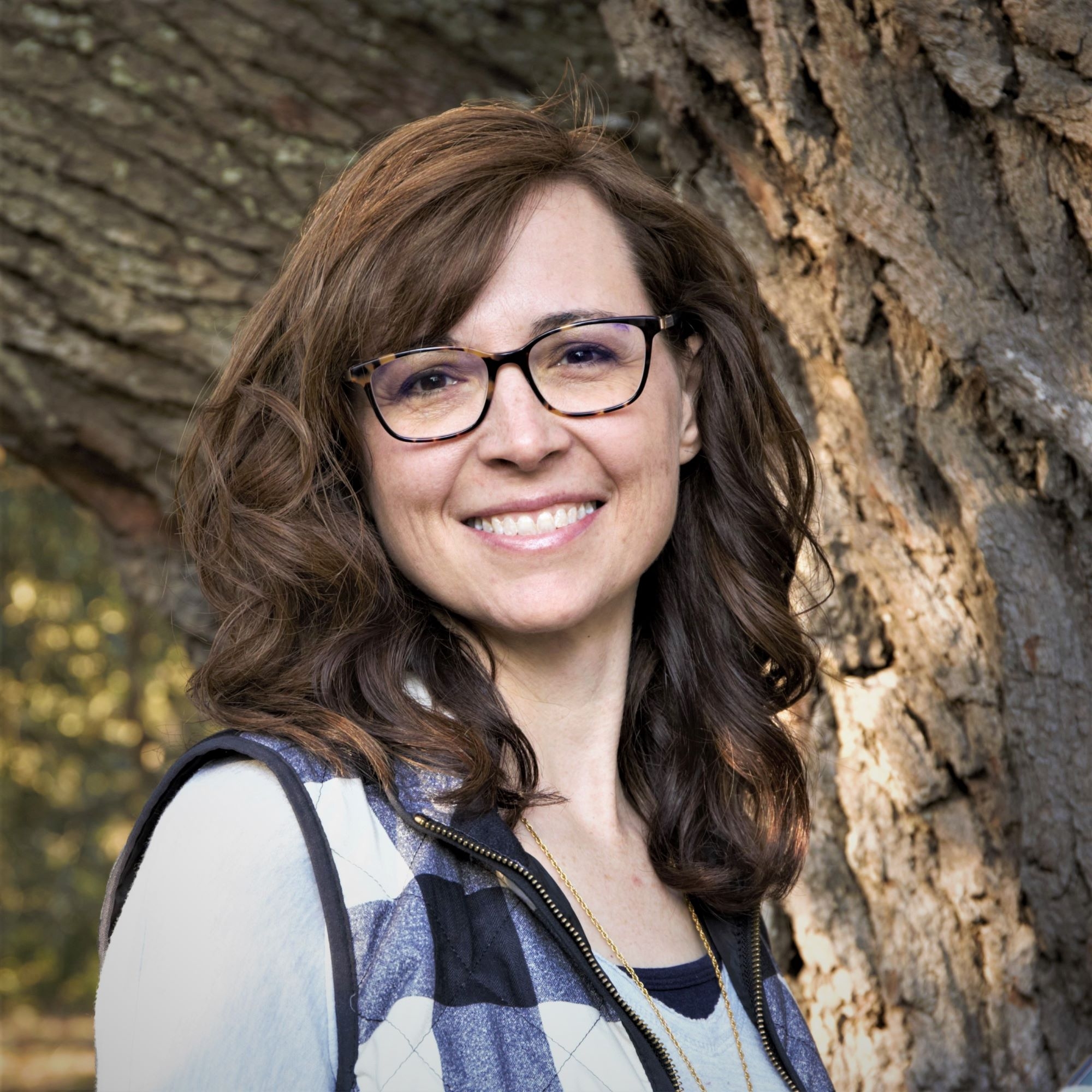Is God Our Master or Our Friend?
Share

“Can we skip this song?”
My friend’s request surprised me. “Friend of God” by Philips, Craig, and Dean was one of my favorites at the time. Its lyrics herald the wonders of a God who deeply loves us, who pays attention to our everyday lives, and who listens to our prayers. To me, the song celebrated God’s astounding grace.
To my traveling companion, however, the song felt disrespectful. To call God “friend” seemed to lower him, to withhold the honor he deserves as our Master, to assume a level of equality no created being deserves.
My friend and I are not the first to disagree on this topic — and with good reason. Both concepts are woven throughout Scripture. We can easily miss the big picture if we focus on only one side of the issue.
Photo credit: ©Getty Images/GordonImages
Where Do We See These Two Concepts in Scripture?

From beginning to end, the Bible portrays God as majestic and holy, completely sinless and worthy of every ounce of honor and respect:
“At just the right time Christ will be revealed from heaven by the blessed and only almighty God, the King of all kings and Lord of all lords. He alone can never die, and he lives in light so brilliant that no human can approach him” (1 Timothy 6:15-16).
“Who among the gods is like you, Lord? Who is like you — majestic in holiness, awesome in glory, working wonders?” (Exodus 15:11).
“You are worthy, O Lord our God, to receive glory and honor and power. For you created all things, and they exist because you created what you pleased” (Revelation 4:11).
Scripture also tells the stories of people whom God called his friends:
“Inside the Tent of Meeting, the Lord would speak to Moses face to face, as one speaks to a friend” (Exodus 33:11).
“And so it happened just as the Scriptures say: ‘Abraham believed God, and God counted him as righteous because of his faith.’ He was even called the friend of God” (James 2:23).
“This is my commandment: Love each other in the same way I have loved you. There is no greater love than to lay down one’s life for one’s friends” (John 15:12-13).
How do we reconcile two seemingly opposite perspectives — God as our exalted Master and God as our closest Friend?
Let’s explore this topic, starting with the concept of “thinking on both hands.”
Photo credit: ©Getty Images/B-C-Designs
Thinking on Both Hands

Scripture is full of apparent contradictions. As someone who loves God’s Word and studies it regularly, I know the discouragement of trying to resolve concepts or passages that seem incompatible.
In Jewish culture, however, this is much less of a problem. Lois Tverberg of the En-Gedi Resource Center shares invaluable insight into how the original readers of God’s Word would have interacted with the text. “This habit of looking at things in terms of two contrasting viewpoints is distinctly Jewish, and a part of their Eastern-thinking culture,” she writes.
While Western readers look for logical explanations, Jewish readers are comfortable leaving paradoxes unsolved, a practice Tverberg calls “thinking on both hands.” She explains, “The rabbis simply embrace the two ideas in tension with each other rather than needing to seek resolution. By doing so, they are actually being true to the text by not ignoring passages that don’t fit their theology. They see that God alone can understand some things.”
If we take this approach of reading “with both hands,” we can hold in tension the truths that God is both:
- High and exalted and gentle and humble (Isaiah 57:15, Matthew 11:29)
- Residing in eternity and close to the brokenhearted (Isaiah 57:15, Psalm 34:18)
- Perfectly sinless and the Friend of sinners (1 John 3:5, Matthew 11:19)
- Our King and our Helper (John 18:37, 14:16)
- Our Master and his followers’ Friend (John 15:20, 15:14-15)
To honor Scripture in its entirety, we must make space for mystery, embracing God’s majesty as well as his invitation to friendship.
Photo credit: Unsplash/Jeremy Yap
The Heart of the Matter

In John 15, Jesus shifts his disciples’ understanding of their relationship with him. “ I no longer call you servants, because a servant does not know his master’s business. Instead, I have called you friends, for everything that I learned from my Father I have made known to you” (v. 15 ).
Later in the same conversation, though, he warns his followers, “Remember what I told you: ‘A servant is not greater than his master.’ If they persecuted me, they will persecute you also” (John 15:20). Clearly, Jesus is not eliminating the Master/servant relationship. So, what’s going on here?
The contrasting phrases in John 15:15 reveal the heart of the matter: “a servant does not know his master’s business” and “everything that I learned from my Father I have made known to you.”
Friendship with God is about intimacy, not equality. Servants don’t get to know their master’s hearts. They’re not at liberty to ask questions or speak freely or bring their problems to the king. They just keep their heads down and do what they’re told.
God, however, invites us into a drastically different relationship. He wants us to know him, so he’s given us his Word. He revealed himself through his Son. He sent his Spirit to live within us and teach us the mind of Christ. Knowing him is the essence of eternal life.
He’s still the Master to whom we owe allegiance. He’s our King, and we’re citizens of heaven, bound by the laws of his kingdom. But because he’s also our Friend, we can experience the joy of knowing him deeply.
As his Spirit renews our minds and produces his fruit, good works will flow out of our relationship. Serving him won’t be burdensome because we’re living in life-giving connection. Where duty once drove us and fear once bound us, love will become the compelling force in our lives.
Photo credit: ©Getty Images/Anastasiia Stiahailo
It’s All in the Wording

After Jesus returned to heaven, his apostles continued exploring the concept of friendship with God in the letters they wrote to the various churches. They employed some poignant words to explain this beautiful gift we’ve received.
Look at how they described those whom God calls his friends:
Reconciled
“God reconciled us to himself through Christ and gave us the ministry of reconciliation” (2 Corinthians 5:18).
In the Bible’s original Greek, to reconcile means “to exchange; to return to favor with.” Because of Jesus and our faith in him, a stunning exchange has occurred. Though once we were God’s enemies, we are now his friends, people who live in his favor.
God doesn’t simply tolerate us because he has to for Jesus’ sake. On the contrary, he takes great pleasure in lavishing kindness on us.
Accepted
“Those who feel free to eat anything must not look down on those who don’t. And those who don’t eat certain foods must not condemn those who do, for God has accepted them” (Romans 14:3).
The Greek word for acceptance means “to receive, i.e. grant access to one’s heart.” As friends of God, we are accepted, wanted, and welcomed close. God isn’t standoffish — he longs to draw us ever deeper into friendship with himself. He invites us to be fully known and fully loved and to know and love him in return.
Emboldened
“Let us then approach God’s throne of grace with confidence, so that we may receive mercy and find grace to help us in our time of need” (Hebrews 4:16).
To have confidence with God refers to “freedom in speaking, unreservedness in speech.” It can also mean “free and fearless confidence, cheerful courage, boldness, assurance.”
Because God is both our King and our Friend, the door to his throne room stands open. We have his ear as well as his heart. There’s no need to slink in or grovel before him. We’ve received a standing invitation to come right on in.
Yes, he’s the King who sits on a heavenly throne. Yes, he deserves our respect. But in faith, we can approach him with boldness. We can speak with free and fearless confidence because we’re clothed in Jesus’ goodness, not our own.
As friends of God, we are reconciled to the One who favors us, accepted by the One who loves us, and emboldened by the One who welcomes us.
Photo credit: ©Getty Images/Grace Cary
What Will We Choose?

I’ll never forget our pastor commenting that some people live their whole lives relating to God simply as their Master. “This doesn’t mean they aren’t ‘saved,’” the pastor was quick to clarify. “But oh, what they are missing!” Friendship with the One who loved us literally to death — there can be no greater joy.
The abundant life hinges on how we relate to God.
Martha and Mary vividly display this distinction in Luke 10:38-42. Both sisters loved Jesus deeply, but Martha served him from a distance. Her heart was anxious and troubled as she tried to keep up with all she wanted to do for him. Mary, on the other hand, got up close and personal — hanging on his every word, desperate to know his heart. She likely knew Psalm 25:14, which explains that “The LORD confides in those who fear him.” In respect, Mary sat at his feet as a learner. From that place of closeness, she enjoyed friendship with Christ.
Paul also illustrates how we can relate to God as both our Master and our Friend. He frequently described himself as “Paul, a servant of God.” Yet in Philippians 3:8, he stated, “I consider everything a loss because of the surpassing worth of knowing Christ Jesus my Lord, for whose sake I have lost all things. I consider them garbage, that I may gain Christ.”
His service, his sacrificial obedience to Christ, flowed out of his ever-deepening, soul-satisfying friendship with God.
Where do you find yourself today? Is it easier to think of God as your Master or your Friend? May we hold this beautiful paradox “with both hands,” honoring God as our Master and enjoying him as our Friend.
Photo credit: ©Getty Images/fizkes
